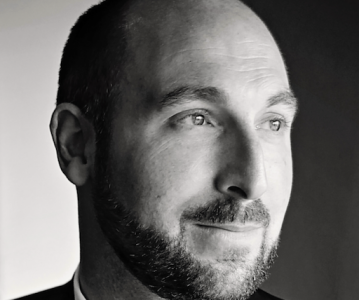Docker Captains are select members of the community that are both experts in their field and are passionate about sharing their Docker knowledge with others. “Docker Captains Take 5” is a regular blog series where we get a closer look at our Captains and ask them the same broad set of questions ranging from what their best Docker tip is to whether they prefer cats or dogs (personally, we like whales and turtles over here). Today, we’re interviewing Thomas Shaw, one of our Docker Captains. He works as a Principal Automation Engineer at DIGIT Game Studios and is based in Ireland.

How/when did you first discover Docker?
I remember it like it was yesterday. The date was August 23rd 2013 and I was working as a Build Engineer for Demonware. During a visit to the Vancouver office, one of the developers named Mohan Raj Rajamanickham mentioned “a cool new tool” called Docker. It sounded too good to be true but I downloaded version 0.5 the next day while waiting for the flight back home to Dublin, Ireland. I played with the Docker CLI for several hours on the flight and that was it. Before the plane had touched the runway in Dublin I was completely sold on the potential of Docker. It solved an immediate problem faced by developers and build engineers alike, dependency hell.
Over the following 12 months we replaced our bare metal build agents with containerized build agents. It was a primitive approach at first. We built a CentOS 5 VM, tarred it up and created a container image from it. This was the base image on which we ran builds and tests over the next 2 years. We went from 8 bare metal build agents, each unique, each manually setup, each with different tooling versions to 4 build agents with just Docker installed.
It was a simple approach but it eliminated the management of several unique build agents. We saw a number of other benefits too, such as better build stability, increased build throughput by 300% and most importantly teams now owned their own dependencies. This approach worked well and around 2015 we started looking at moving our CI/CD pipelines into AWS. We originally took a hybrid approach and ran the majority of builds and tests in our own datacenter and just a handful in AWS. This was easier than expected. Docker made our workloads portable and we began to leverage the scalability of AWS for running tests. The unit tests (which were actually functional tests) for one of our main projects was taking over 1 hour per commit. Using containers we were able to split the tests across multiple containers on multiple build agents and we reduced the execution time to around 10 minutes. It was at this point that more folks started to pay attention to the potential of Docker.
What is your favorite Docker command?
I really enjoy “docker diff”. I find it incredibly useful to see what files/directories are being added or modified by the process within the container. It’s great for debugging. A close second would be “docker stats”.
What is your top tip for working with Docker that others may not know?
When possible, own your own base image and pin tooling versions. It’s convenient to use the public images on Docker Hub but when working in an organization where hundreds of developers are relying on the same base image try to bring it in house. We set up an image “bakery” at Demonware where we would build our base images nightly, with pinned versions of tools included, ran extensive tests, triggered downstream pipelines and verified that our base image was always in a good state. From experience it’s the base image where the most “bloat” occurs and keeping it lean can also help when moving the image around your infrastructure.
What’s the coolest Docker demo you have done/seen ?
My favorite demo was by Casey Bisson from Joyent. In the demo he showed off how Triton worked and how he could scale from a single container running locally out to an entire datacenter by just updating a single endpoint. This was in 2016 and I still love the simplicity of this approach.
What have you worked on in the past six months that you’re particularly proud of?
I’ve been using containers daily since late 2013 and still find new uses for them regularly. I’m currently working on improving developer tooling and UX at DIGIT Games Studios in Dublin. Part of this work includes containerizing our tooling and making it accessible in multiple ways including from Slack, command line, callable by API and even runnable from a spreadsheet. Docker enables us to bring the tooling closer to the end user whether they are technical or non technical. Rolling out updates to tools is now trivial.
What do you anticipate will be Docker’s biggest announcement this year?
Development Environments (DE) has received a huge amount of positive feedback based on the early announcements. I think the potential of DE is huge. To have these environments tightly integrated into a developers IDE, easily shareable and customizable will remove existing friction and help developers move from idea to production with greater velocity.
What are some personal goals for the next year with respect to the Docker community?
Our last Docker Dublin Meetup was in February 2020 and with a community of over 3000 members I’d like to start the in-person meetups again in 2022. I’d also like to continue running more Docker Workshops around Ireland and take the power of containerization out to other communities.
What talk would you most love to see at DockerCon 2022?
Any talks that include gaming would be great. I particularly loved the live migration demo of Quake a few years ago. Some studios are doing really cool stuff with containers. As early adopters of containers, Demonware may have some useful experiences to share with regard to their journey from self-hosted Kubernetes to the cloud.
Looking to the distant future, what is the technology that you’re most excited about and that you think holds a lot of promise?
That’s a tough question. Any technology that focuses on the user experience first and is a joy to use excites me. From a gaming perspective Augmented Reality has so much potential, particularly for mobile gaming. I’m not going to mention Blockchain or NFTs since I don’t know enough about either to comment. They may have their place but if they negatively impact the environment as suggested then perhaps they need to go back to the drawing board for a few more iterations.
Rapid fire questions…
What new skill have you mastered during the pandemic?
Mindfulness.
Cats or Dogs?
Dogs.
Salty, sour or sweet?
Sweet.
Beach or mountains?
Mountains.
Your most often used emoji?
🤗
DockerCon2022
Join us for DockerCon2022 on Tuesday, May 10. DockerCon is a free, one day virtual event that is a unique experience for developers and development teams who are building the next generation of modern applications. If you want to learn about how to go from code to cloud fast and how to solve your development challenges, DockerCon 2022 offers engaging live content to help you build, share and run your applications. Register today at https://www.docker.com/dockercon/
